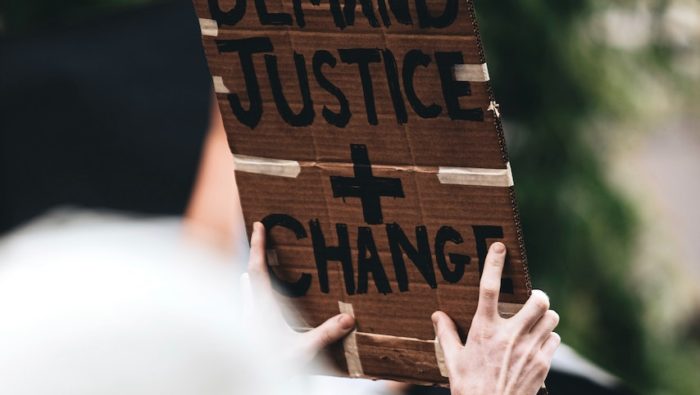
Pivoting Through a Pandemic: Learning from Criminal Justice Responses to Sexual Abuse

THIS POST IS PART OF OUR INTERNATIONAL WOMEN’S DAY 2022 SPECIAL SERIES.
In 1996, Sue Lees observed that the rape trial offers a barometer of wider ideologies of sexual difference and gender power. Feminists have long highlighted the barriers that victim-survivors of sexual abuse must overcome to secure justice, whether procedural or substantive. And while some progress has been achieved, it has typically been slow-paced. Could a moment of crisis, like the Covid-19 pandemic, shock the justice system into an improved response? That is one of the key questions explored in JiCSAV, a multi-disciplinary project funded by the ESRC, which examines the justice journeys of survivors of rape and sexual abuse during the pandemic in England and Wales.
Through 120 interviews with stakeholders across police, prosecutors, judges, forensic medical examiners, independent sexual violence advisors (ISVAs) and survivors of sexual abuse, the JICSAV study considers the ways in which Covid-19, and its associated restrictions, posed new challenges to survivors’ engagement with and progression through the criminal justice system. It explores the extent to which existing difficulties associated with inadequate resourcing and a lack of trauma-informed practice across the investigative, prosecutorial, and trial process were exacerbated, but it also identifies innovative practices that emerged, which have the potential to improve the future experiences of survivors of sexual abuse.
In this blog, we reflect only on one dimension of our findings, pertaining to the criminal courtroom, and reflect in particular on key themes of testimony-giving and digital communication. As a prelude to that, however, it is important to note that – in the context of a persistent justice gap in sexual abuse reports, evidenced through substantial case attrition – those complainants who see their cases proceed to trial are already in an unusual position. They are all the more where their cases were heard during a pandemic in which the justice system experienced backlogs on an overwhelming scale, a depletion of skilled criminal advocates from the bar, and an unprecedented demand for specialist ISVA support, all of which also increased victim-survivors’ vulnerability and jeopardised the prospects of redress.
Testimony-Giving
Though not implemented in response to the pandemic, the concurrent roll-out of an initiative to allow adult complainants in rape cases to combine their pre-recorded evidence-in-chief (based on an ‘Achieving Best Evidence’ interview conducted by police during their investigation) with pre-recorded cross-examination (Section 28, Youth Justice and Criminal Evidence Act 1999) has been pointed to as a mechanism by which to expedite their involvement and mitigate delays in cases coming to trial. Section 28 proceedings had been implemented pre-pandemic for vulnerable witnesses (including children), with pilots indicating broadly positive outcomes for witnesses and court processes alike. However, early reflections in the JiCSAV study suggest that its extension to intimidated adult witnesses has been more challenging with, amongst other things, inadequate resourcing to support the additional demands on court personnel and infrastructure. While most interviewees were supportive of the underlying principles behind Section 28, they raised concerns about its potential to create further delays in completion of rape and serious sexual assault cases.
For complainants outside of the Section 28 process, whose cases proceeded to trial during the pandemic, the ability to secure reliable and effective access to other special measures was precarious – some socially distanced courtrooms were unable to accommodate requests for screening, or only did so via impromptu construction of ‘jenga-like’ structures behind which complainants gave their testimony. There were also reports of Nightingale courts not being designed in ways that facilitated separate entrances and waiting areas. This increased the prospects of complainants and defendants (or their supporters) encountering one another in the court building, which is understandably apt to increase witness’ distress.
Digital Communication
In the longer term, some interviewees hypothesised that increased familiarity during the pandemic with screen-mediated technology might help normalise the use of special measures (including Section 28 pre-recordings) within the courtroom. Moreover, the use of digital mediums was suggested, in some cases, to have improved the quality of communication in the run up to trial, between both police and CPS, and complainants and criminal justice practitioners. Our research suggests this may indeed be a productive outcome of pandemic pivots, offering ways of working that might improve languishing levels of victim satisfaction and ensure more effective collaboration in case preparation. This technology also opens up new avenues for improving complainant care, for example CPS communication in the aftermath of a verdict, or of a decision not to proceed to trial, via a conference call. Whatever the medium, these can be difficult conversations but tele-conferencing may be a better alternative to what is often silence in the former situation and a sterile letter in the latter; and will support the provision of wrap-around ISVA support to accompany communications.
Conclusion
Two years on from the commencement of Covid-19 lockdowns, we are still in the midst of charting and understanding its effects on survivors’ justice journeys. What is clear is that many of those effects will be long-lasting, and are tied to pre-existing vulnerabilities in the resourcing, capacity and infrastructures of the criminal justice system. The above challenges presented in the courtroom context also reflect systemic issues regarding a failure to mainstream (adult) special measures and to respond to complainants whose trauma is often acute and attenuated by criminal processes but whose status remains as ‘just’ a witness. Resolving these challenges requires innovation and investment beyond that provoked by the pandemic, but there are glimmers of opportunity in respect of new modes and norms of testimony-giving, as well as new means of communication, that might offer an improvement. Amongst other things, then, what the JICSAV study reveals is the complexity of crisis, and the ways in which responding to it can expose and deepen systemic and procedural precarities whilst also highlighting the potential for, and quickening the pace of, progressive reform.



